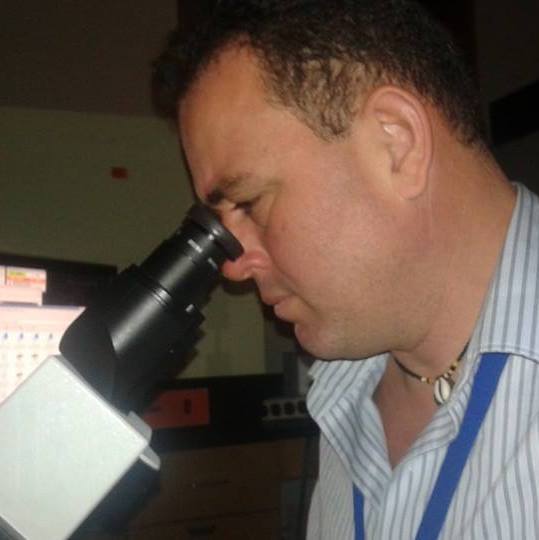
Global health research projects are vital in addressing health disparities and improving health outcomes worldwide. I have firsthand experience managing budgets and projects in a global health setting as a project manager and team leader. In this article, I will share my experiences and provide tips on how to manage budgets and projects effectively.
As a Fogarty Global Health Fellow in rural Ghana, I worked on a five-year Global Health research project between Ghana and the US, studying the role of exosomal microRNA in malaria and sickle cell disease. This experience provided me with a wealth of knowledge and experience in public health and epidemiology, which can be applied to other global health issues such as endometriosis, Buruli ulcer, hookworms, and COVID-19.
Managing a global health research project involves a range of responsibilities, from securing funding to coordinating research activities, managing budgets, and leading a team of researchers. One of the biggest challenges in managing a global health research project is budget management. Budgets are often limited, and it can be challenging to manage funds effectively while ensuring that the project stays on track.
To manage budgets effectively, it is essential to have a clear understanding of the project’s goals, objectives, and timelines. This understanding can help project managers identify potential budget constraints and allocate resources accordingly. It is also important to establish a system for tracking expenses and to monitor the budget regularly to ensure that the project stays within budget.
In addition to budget management, managing a global health research project also involves coordinating research activities and leading a team of researchers. Effective communication is critical in this regard, and it is essential to establish clear lines of communication between team members and stakeholders. It is also important to establish clear roles and responsibilities for team members and to provide regular feedback to ensure that everyone is working towards the project’s goals and objectives.
In my experience, one of the most significant challenges in managing a global health research project is coordinating research activities across different countries and cultures. This challenge can be overcome by building strong relationships with local partners and stakeholders and by establishing a collaborative and inclusive research environment.
As a project manager and team leader, it is essential to be adaptable, flexible, and responsive to changing circumstances. In the context of global health research, this often means being prepared to respond to emerging health crises such as COVID-19. The pandemic has highlighted the importance of global health research and has underscored the need for collaboration and innovation in addressing global health challenges.
Managing a global health research project involves a range of responsibilities, from securing funding to coordinating research activities and managing budgets. To manage budgets effectively, it is essential to have a clear understanding of the project’s goals, objectives, and timelines and to establish clear lines of communication between team members and stakeholders. By working collaboratively and remaining adaptable and responsive to changing circumstances, we can make significant strides in improving global health outcomes and addressing health disparities worldwide.
The diseases:
Global health is a field that aims to improve health and achieve equity in health for all people worldwide. It involves addressing health issues that affect populations across borders and continents, and it requires collaboration between different countries and organizations. One of the main challenges in global health is tackling diseases that disproportionately affect vulnerable populations in low- and middle-income countries. I have been involved in these particular diseases over the last 10 years or research:
Malaria is a parasitic disease that is transmitted through the bite of infected mosquitoes. It is prevalent in sub-Saharan Africa, but it also affects other parts of the world. According to the World Health Organization (WHO), there were an estimated 229 million cases of malaria worldwide in 2019, and the disease resulted in 409,000 deaths. Malaria is preventable and treatable, but it remains a major public health challenge due to various factors such as resistance to antimalarial drugs and insecticides, inadequate funding, and weak health systems.
Sickle cell disease (SCD) is an inherited blood disorder that affects the shape and function of red blood cells. It is prevalent in sub-Saharan Africa, but it also affects people of African descent and other populations around the world. SCD can cause severe pain, infections, and organ damage, and it can lead to premature death. According to the WHO, about 300,000 children are born with SCD each year, and the disease affects millions of people worldwide. There is currently no cure for SCD, but research is ongoing to improve treatment and find a cure.
Endometriosis is a chronic gynecological condition in which tissue similar to the lining of the uterus grows outside the uterus, causing pain and other symptoms. It affects an estimated 176 million people worldwide, and it can have a significant impact on quality of life and fertility. Despite being a common condition, there is still a lack of awareness and understanding of endometriosis, and research is needed to improve diagnosis, treatment, and management.
Buruli ulcer is a neglected tropical disease caused by a bacterium that affects the skin and soft tissues. It is prevalent in West and Central Africa, but it also affects other parts of the world. Buruli ulcer can cause disfigurement, disability, and social stigma, and it can have a significant impact on the lives of affected individuals and their families. There is currently no vaccine for Buruli ulcer, and research is needed to improve diagnosis, treatment, and prevention.
Hookworms are parasitic worms that live in the small intestine and can cause anemia, malnutrition, and impaired cognitive development in children. They are prevalent in low- and middle-income countries, and they affect millions of people worldwide. Hookworms can be prevented through measures such as improved sanitation and hygiene, but research is needed to develop effective and affordable treatments.
COVID-19 is a respiratory illness caused by the SARS-CoV-2 virus that emerged in late 2019 and has since become a global pandemic. COVID-19 has had a significant impact on public health, economies, and social systems around the world, and it has exposed inequalities and vulnerabilities in health systems and societies. Research is crucial to better understand the virus, develop effective treatments and vaccines, and address the social and economic impacts of the pandemic.
Global health research plays a critical role in addressing the challenges posed by diseases such as Malaria, sickle cell disease, endometriosis, Buruli ulcer, hookworms, and COVID-19. By investing in research, we can improve our understanding of these diseases, develop effective interventions, and ultimately improve health outcomes for vulnerable populations around the world.
Me, from Tunis, to Tokyo, to Accra, to Atlanta: A Career in Molecular Genetics and Global Health
My journey in molecular genetics and global health began in Tunisia, where I received my undergraduate degree in biological sciences. During my studies, I developed a keen interest in human genetics, and I pursued this passion by earning a Ph.D. in molecular genetics from the University of Tokyo.
After completing my doctoral studies, I had the opportunity to work on a human genetic epidemiology study of muscular dystrophy, collaborating with research centers in Tunisia, Japan, and France. This research led to several publications in high impact factor journals and provided me with invaluable experience in conducting global health research.
Following this project, I moved to the United States and completed a postdoctoral fellowship at Emory University School of Medicine, where I studied cancer and cell-cell interactions. In 2007, I joined Morehouse School of Medicine for a second postdoctoral position, where I focused on the epidemiology of malaria resistance and sickle cell disease, along with other neglected tropical diseases. This research eventually led to me being awarded a Fogarty Global Health Fellowship in 2014.
Through the fellowship, I collaborated with the Noguchi Memorial Institute for Medical Research at the University of Ghana on an epidemiological analysis of malaria resistance and sickle cell disease. The experience was transformative, and I became dedicated to improving health outcomes in low- and middle-income countries.
In 2016, I was awarded a Career Development Grant from the National Institute of Health’s Fogarty International Center for a five-year global health research project between Ghana and the US. The project aims to study the role of exosomal microRNA in malaria and sickle cell disease, and I am currently overseeing its execution as an Assistant Professor at Morehouse School of Medicine’s Physiology Department.
My current role has three primary components. The first is a global public health component, which involves managing a collaboration with the University of Ghana and the Korle-Bu Teaching Hospital to establish a cohort sample and data collection program from patients with malaria and sickle cell disease, as well as controls. I have been living between Ghana and the US since 2014, overseeing the project, which has already collected well over a thousand samples.
The second component of my role focuses on basic research, studying the effects of targeted microRNAs on inflammation and angiogenesis in patients with endometriosis and uterine fibroids. I also focus on identifying molecular mechanisms that mediate interactions between hemoglobinopathies and protection against malaria using genomic technologies. I supervise and mentor a team of graduate students and research associates on different projects and write grant proposals, while overseeing international collaborations.
The third component of my role is teaching and mentoring. I teach graduate and medical students courses that include Biochemistry, Protein biosynthesis, Human Genetics, Malaria Genomics, and Skeletal Muscle Physiology. I also serve as a thesis advisor and mentor for different grad students in Public Health and Biomedical Science.
My career in molecular genetics and global health has taken me from Tunisia to Tokyo to Accra to Atlanta. My education, certifications, and experiences have allowed me to conduct research on different diseases, and to teach and mentor the next generation of global health researchers. Through my work, I hope to contribute to the development of new therapies and interventions that improve health outcomes in low- and middle-income countries.

